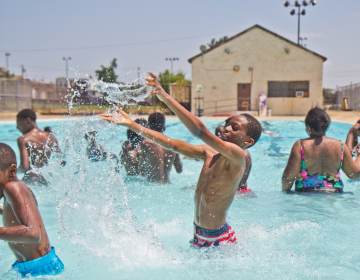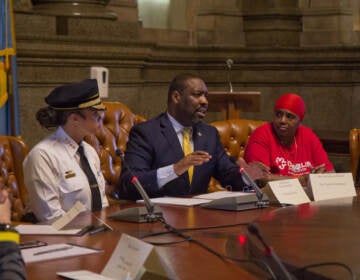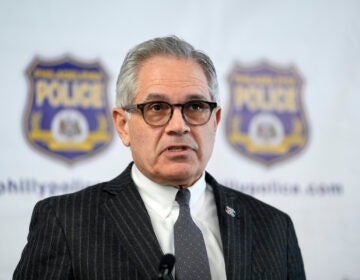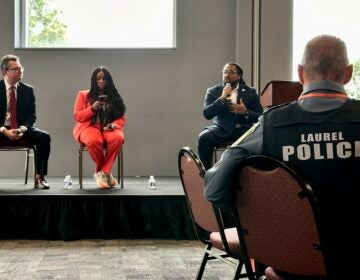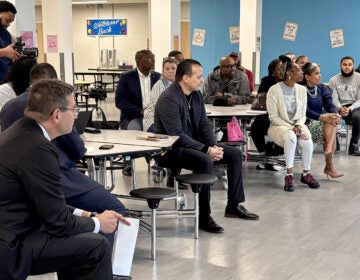PlayStreets hires teens to run programs on Philly blocks, and trains them to respond to gunfire
Teens working the program as Play Captains have had to undergo special training in light of the ongoing gun violence crisis.

PlayStreets staff head to Pennsgrove Street in West Philadelphia where they’ll be facilitating games and crafts with neighborhood kids on their first day of work, July 11, 2022. (Kimberly Paynter/WHYY)
“Shout out, get out, hide out.”
It’s the active shooter equivalent of “stop, drop and roll,” and it’s a crucial piece of knowledge for the crew of teenagers helping with Philadelphia’s “PlayStreets” program this summer. They started work this Monday, hoping to create a safe and educational environment despite the city’s ongoing gun violence crisis and a Fourth of July weekend disrupted by gunfire.
Nonprofit group Fab Youth Philly has hired and trained 43 “play captains” to work the “PlayStreets” program this summer — a 50-year-old Parks and Recreation initiative that closes certain streets to traffic from 10 a.m. to 4 p.m. so that staff can run educational and physical fitness programs as well as meal distribution. There are 230 streets being closed off, but only 13 of them will have play captains. The play captains program, which started in 2017, strives to prevent “summer slide”, or the loss of academic gains during the school break that can worsen the racial and economic achievement gap.
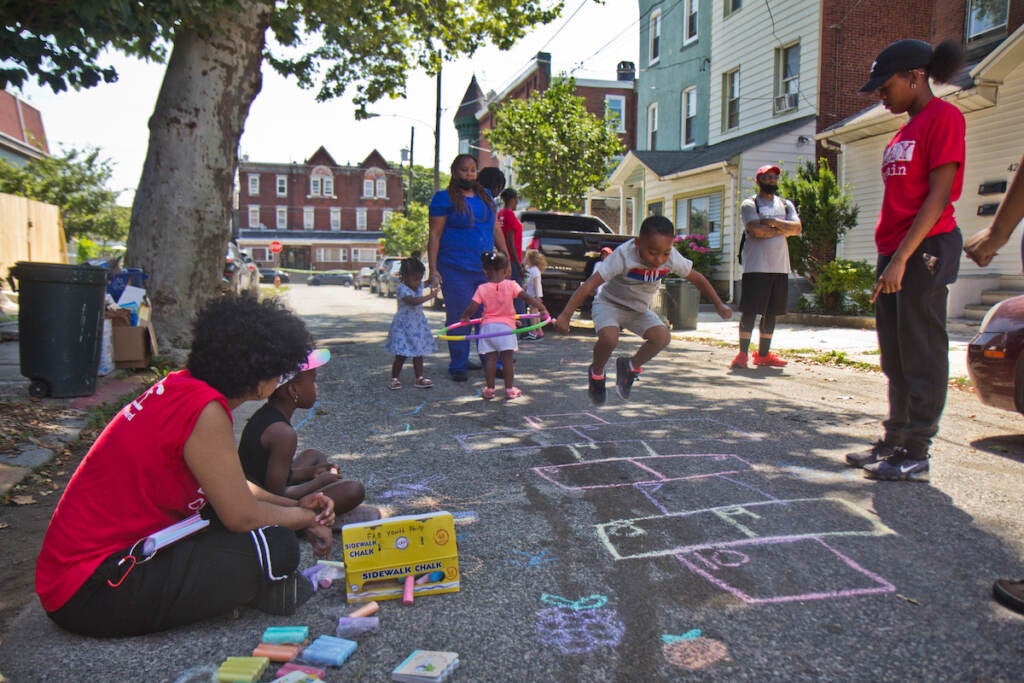
But providing the service now requires a full set of safety plans in the event of gunshots, said Kevin Veltri, manager of operations for Fab Youth Philly.
“Everybody is trained to get out of that area,” he said. “Everybody will get together, check in, make sure they have everybody, and then the check out is essentially making sure everybody has a safe plan to get back home.”
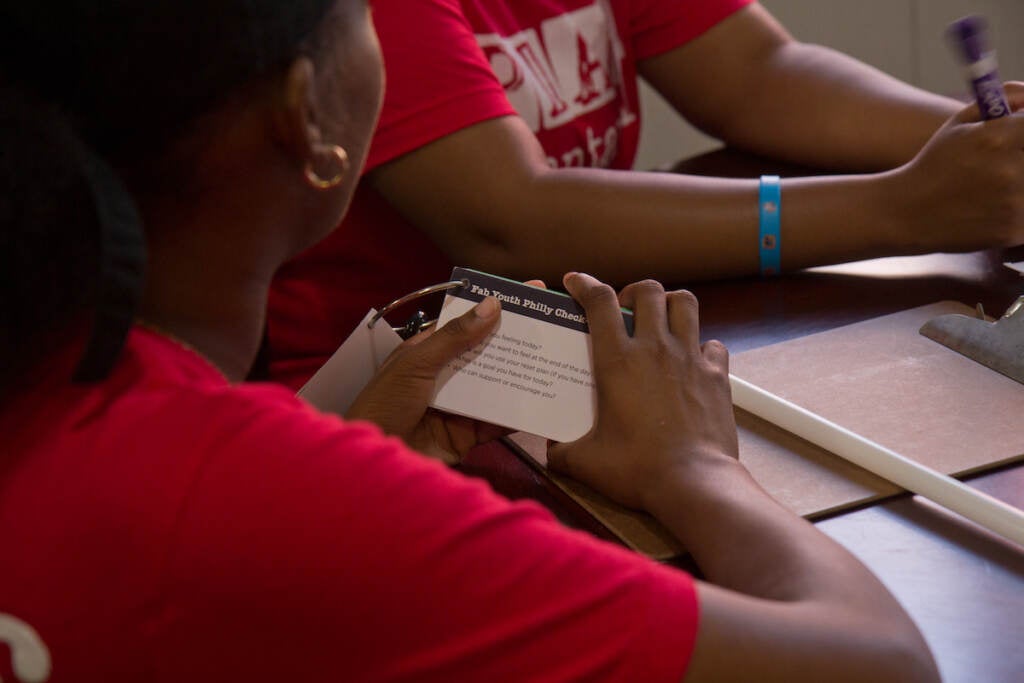
Program staff are in regular contact with the Philadelphia Police Department about potentially dangerous activity near PlayStreets, he said, and certain streets have been removed from the program because of concerns about safety. Veltri has talked to businesses in the areas around PlayStreets to make sure staff and participants have a place to duck into if violence erupts.
Noelia Bedoya, 16, said she had second thoughts about taking the job because of the frequency of shootings in Philadelphia. She said she feels better after being trained, but she’s still a little nervous about being in charge during a dangerous situation.
“I’ll be prepared, but I’m just not sure,” she said.
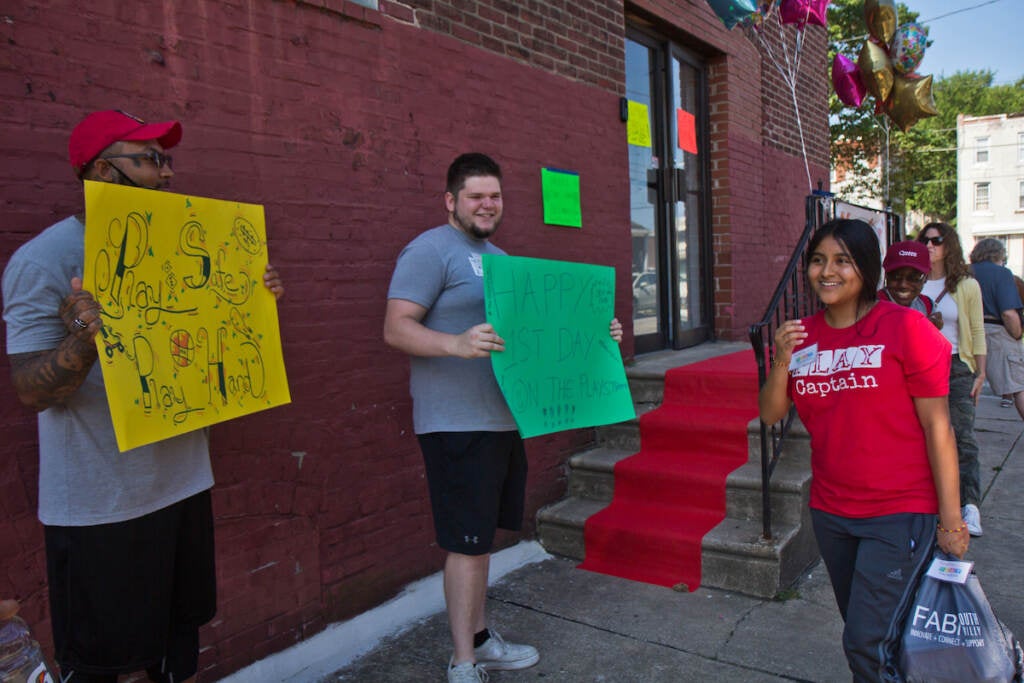
In 2020, there were eight shooting incidents on or near PlayStreets with 13 people shot and 5 fatalities, according to news reports. Still, Parks and Rec officials have been encouraging parents to bring their children out to city-funded programs. The idea is that busy, active streets are a deterrent for crime. Some researchers refer to this as “busy streets theory,” and argue that creating a sense of empowerment and connection in a community reduces the likelihood that people will perpetrate violence.
Some Philadelphia parents are worried about sending their children out into neighborhoods this summer, and some groups have canceled big public activities such as block parties.
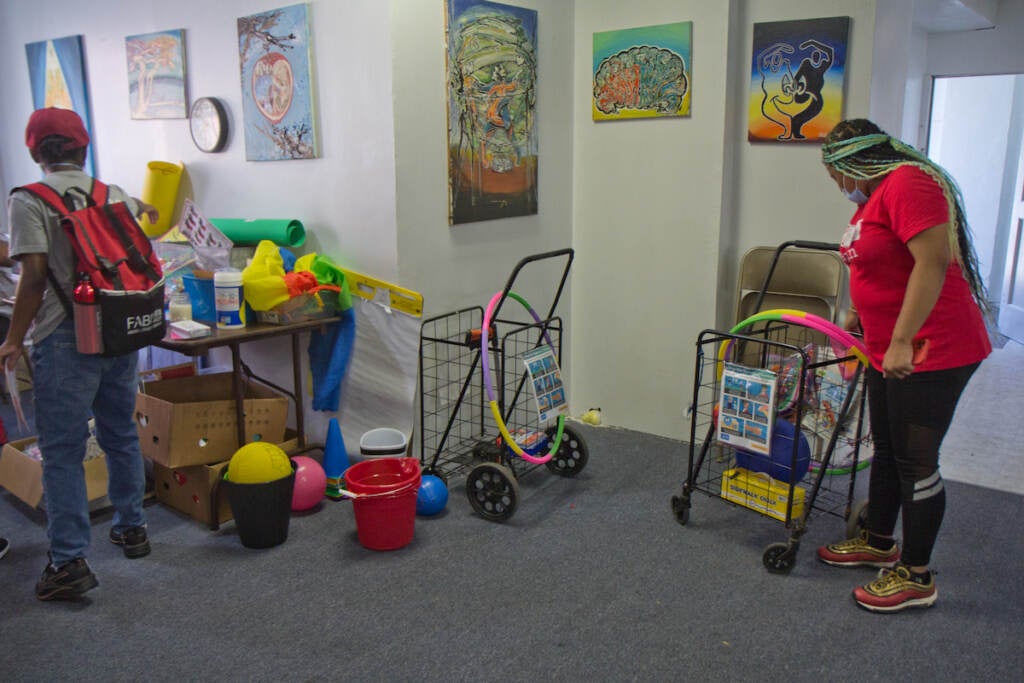
But the play captains say they aren’t giving up. On Monday they loaded jump ropes, multi-colored parachutes, activity books, and sidewalk chalk into wheeled carts, and headed out to the streets for the day.
Ameerah Chennault, 15, read out the mission statement to the group. She said being a leader in the program makes her feel empowered.
“Being here, they really treat us like we matter in the world, and want to make sure we’ve got input on everything,” she said.
And she thinks that employing people her age in programs like this one could help them avoid getting involved in gun violence. Studies of summer youth employment programs in other cities have shown that they reduce criminal activity among teens.
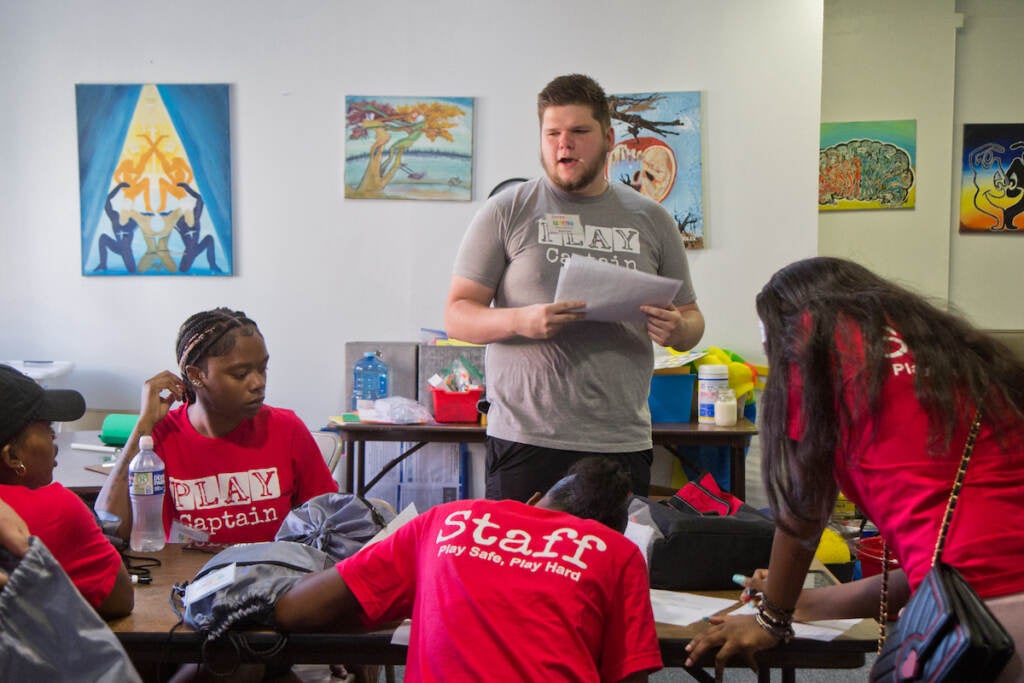
“Teenagers these days, they really are getting into dangerous stuff,” she said. “So them taking us in, it’s helping us get a better future.”
This summer a few PlayStreet sites in Kensington are extending play hours to 7 p.m. by taking children to a nearby park for the end of the day.
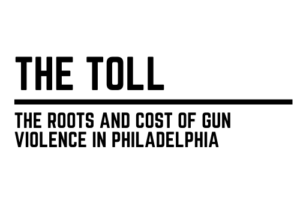 This article is part of The Toll: The Roots and Costs of Gun Violence in Philadelphia, a solutions-focused series from the collaborative reporting project Broke in Philly. Find other stories here and follow on Twitter at @BrokeInPhilly.
This article is part of The Toll: The Roots and Costs of Gun Violence in Philadelphia, a solutions-focused series from the collaborative reporting project Broke in Philly. Find other stories here and follow on Twitter at @BrokeInPhilly.
 WHYY is one of over 20 news organizations producing Broke in Philly, a collaborative reporting project on solutions to poverty and the city’s push towards economic justice. Follow us at @BrokeInPhilly.
WHYY is one of over 20 news organizations producing Broke in Philly, a collaborative reporting project on solutions to poverty and the city’s push towards economic justice. Follow us at @BrokeInPhilly. 
Get daily updates from WHYY News!
WHYY is your source for fact-based, in-depth journalism and information. As a nonprofit organization, we rely on financial support from readers like you. Please give today.


